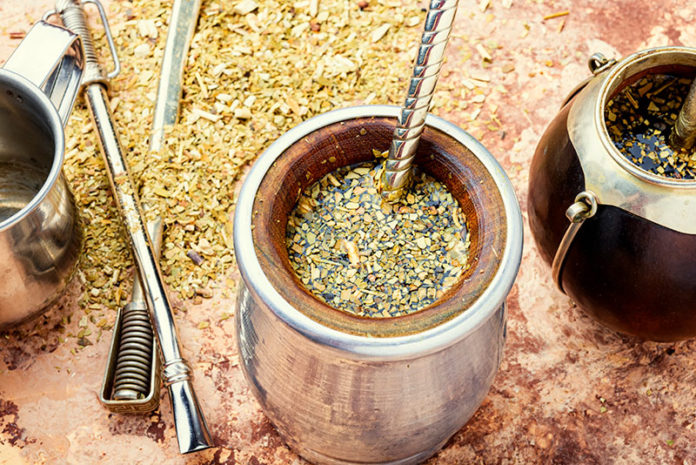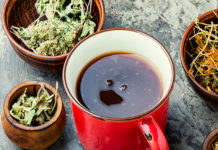Though it’s a centuries-old drink of the Guarani Indians, an increasing number of college students are being drawn to yerba mate, (mah-tay), because it has been given a modern, cool, exotic and healthful appeal.
It’s a caffeine-loaded tea brewed from leaves of Ilex paraguariensis – an evergreen shrub that grows in South and Central America. It is touted for its ability to increase energy, control appetite and boost the immune system.
Available in ready-to-drink cans and packaged leaves that can be brewed, manufacturers have targeted college students for good reason. Most of them use caffeine regularly. They see yerba mate as a healthier option than energy drinks that contain taurine.
Too Much of a Good Thing?
But research shows that as with many good things, it might be best to use yerba mate in moderation.
No doubt, the need for caffeine among college students makes them an excellent target for yerba mate marketers. A study by Clinical Nutrition – the journal of the European Society for Clinical Nutrition and Metabolism — found that 92 percent of college students use caffeine in any form, with the most popular being coffee. Seventy-nine percent of these students reported using caffeine to stay awake.
According to a March 1, 2020, article in the University of California, San Diego, Guardian, Yerba mate manufacturer Guayakí, one of the largest in the industry, along with two of its competitors, have a well-established presence on campus. Guayakí offers several yerba mate and other drinks. One is branded as a typical energy drink in a can, infused with tea and juice.
Because of scant research, yerba mate does not yet have the Food and Drug Administration’s approval.
Research Suggests Health Benefits and Dangers
On a positive note, some research indicates that drinking yerba mate helps preserve bone density. Which is important later in life. At the University of Illinois, a preliminary study suggested that bioactive compounds found in one cup of yerba mate can cause colon cancer cells to self-destruct – in laboratory tests only.
On the downside, there might be a cancer risk by the fact that the popular tea contains polycyclic aromatic hydrocarbons (PAHs), compounds that are carcinogenic. One study found very high concentrations of these in yerba mate leaves.
There is some research connecting yerba mate use to cancers of the esophagus, prostate, mouth, lungs and bladder. But this is among people who drink it every day. Some studies say the risk is highest among those who also smoke and drink a lot of alcohol, while others say the highest risk is among those who do not smoke or drink alcohol.
At Risk for Excessive Use?
It may appear that there is no harm in moderate use of Yerba mate, but we need more research. It is clear, however, that college students could be at risk of excessive use as this trend keeps growing.
Manufacturers who have targeted college students as customers are seeing great success, as the Guardian article points out: Guayakí’s marketing campaign has paid great dividends.
“The company saw bottled and canned tea sales rise 17.9% through August 11, climbing to over $41.7 million,” the article reads. “Their popularity has led to competitors rising to claim a piece of the pie. Yachak was one of the sponsors of last year’s Sun God Festival. They gave out free drinks at the event. Yachak targets the college student consumer due to the potential to hook them on their product early on and have a loyal customer.”
These companies are capturing the ideal audience, college students. To sponsor and brand themselves with and create a generation of loyal customers, the article reads.
Just remember, you can be loyal to a yerba mate brand and still use it very moderately.








